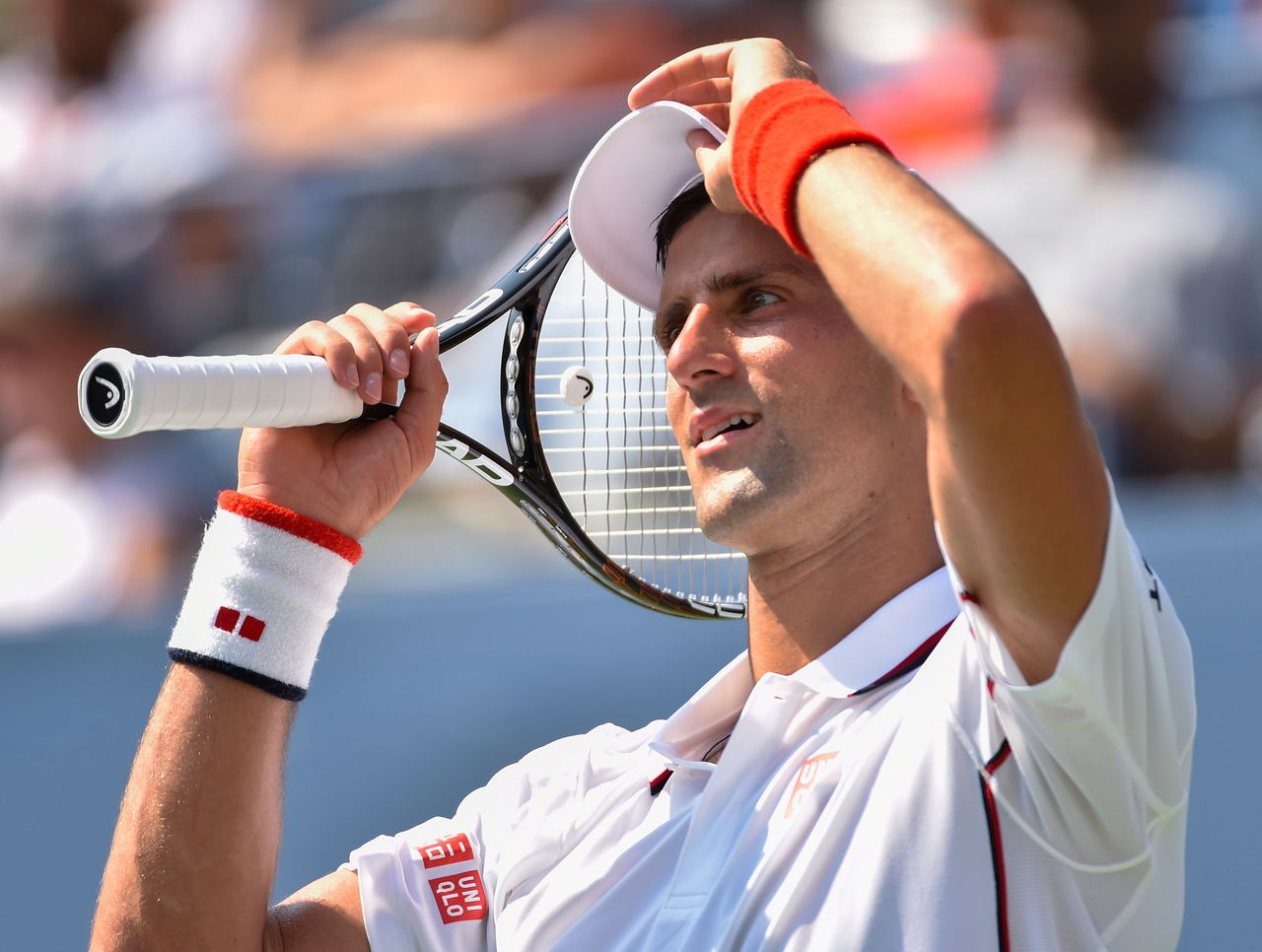Nishikori continues incredible run; shocks world No. 1 Djokovic to advance to U.S. Open final
The pride of Japan, No. 10 seed Kei Nishikori shocked the world Saturday, continuing his staggering 2014 U.S. Open by bumping off top seed and five-time finalist Novak Djokovic 6-4, 1-6, 7-6(4), 6-4 in the semifinals.
On another sweltering and windy day in Flushing Meadows, Djokovic simply couldn't muster the energy needed to overcome an opponent who's at the top of his game. After a sloppy first set, Djokovic played a dazzling second, in which he asserted himself in the return game, attacked Nishikori's tepid second serve, and dictated points from the baseline.
But he started to look tired in the third, especially after losing a marathon 12-minute game at 1-1 in which he squandered four break points. His legs started to go. His returns got shorter. He started shoveling backhands into the net.

The other issue was Nishikori, who happens be a hell of a player. He combines incredible quicks with great anticipation, heady tactics with a willingness to take big cuts. He can whale from both wings, and his groundstrokes are up there with the best of them. The only thing his game is really missing is a serve. He rarely gets any free points off his first. His second is slow and doesn't kick much, often leaving him vulnerable and on the run. Coming off consecutive five-set, four-plus-hour matches, you figured this would start to become a problem as the match went on.
Turns out Nishikori is also tough as nails. Not only did he look completely undaunted, in the biggest match of his career, trading blows with a far more accomplished opponent. He somehow looked fresher, too. After he failed to serve out the third set at 5-3, let Djokovic take it to a tiebreaker, and then watched a 4-0 lead in that tiebreaker evaporate, you knew he'd arrived at his make-or-break moment. He would not have survived losing that set.
This is what Djokovic does and it's a huge part of what makes him so formidable. When his back is against the wall, he gets tougher; he locks in, focuses on playing defense, dials down the risk, refuses to miss shots, and makes you beat him. Like all the greats, he knows that winning the mental game can be enough, even if you aren't all there physically.
Nishikori, an untested, oft-inconsistent first-time Slam semifinalist, looked ripe for a Djokovician mind job. But he didn't crack. At 5-4 in the breaker, threatening to unravel, he took both of Djokovic's service points. On set point, he went defense-to-offense, ranging far to his right to hit a forehand on the run, whipped it back deep to Djokovic's backhand side, and forced an error that gave him the set.
It was Djokovic who folded in the fourth. He lost confidence in his groundstrokes, played tentatively, got pushed around on the baseline, and stopped going after Nishikori's serve. After winning nearly 60 percent of second-serve return points in the first three sets, he won just 25 percent in the fourth. He won just one of nine points on his own second serve. He made 12 unforced errors. The last one came on match point, after a wild exchange in which both guys got balls to skid off the lines. Djokovic finally pushed a backhand long, and Nishikori was a Grand Slam finalist for the first time.
His exhilarating and improbable run has seen him beat three top-5 seeds in succession, in No. 5 Milos Raonic, No. 3 Stan Wawrinka, and now the world No. 1. He's the first man of Asian descent to make a Grand Slam singles final. He ended Djokovic's run of four consecutive U.S. Open finals appearances. And at 24, he is, amazingly, the only player younger than Djokovic to ever beat him at a Grand Slam.
He's also made a ton of new fans.
HEADLINES
- Tennis Australia's Craig Tiley to become CEO of USTA
- Roddick joining ESPN's coverage of Wimbledon, US Open
- Alcaraz takes down Fils in less than an hour to claim Qatar Open title
- Tennis participation reaches new high in USA, says association
- Shelton beats Fritz to win Dallas Open in meeting of top Americans